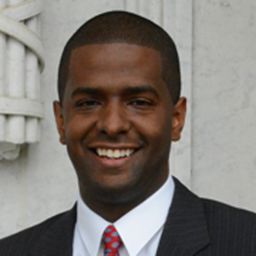Editor’s Note: Bakari Sellers is a former Democratic member of the South Carolina House of Representatives and a CNN commentator. He is the author of the book “My Vanishing Country” and an attorney at Strom Law. The views expressed in this commentary are his own. View more opinion at CNN.
On February 8, 1968, three South Carolina State University students were killed by State Highway Patrol Troopers during a campus protest. Twenty-seven others were wounded. My father, Cleveland Sellers, Jr., was shot in the arm that day, convicted for inciting a riot, and served seven months in prison. This dark day is known by many, but not enough, as the Orangeburg Massacre. And though it took place 16 years before I was born, it remains the most important day in my life.

My father made certain that my siblings and I never took for granted the sacrifice that ensued just 23 miles up the road. As a result, I grew up adulating the brave students in Orangeburg who suffered bullets for the pursuit of racial justice. I am a true child of the Civil Rights Movement.
But now that I am a father, it is disappointing to see the vitriol and racism that my father tried so hard to eradicate looming over the next generation.
In just a few weeks we have learned of the killing of two black men: George Floyd, who died after he was held down with a knee of a white police officer on his neck, and Ahmaud Arbery, who was hunted down by a former police officer and his son (both white) while he was jogging.
We have also learned of the white woman who called the cops and falsely said she was being threatened by Christian Cooper, a black man, in Central Park, after the man, who was birdwatching, calmly asked her to leash her dog as required. When she refused, Cooper said, in a Facebook post about the incident, that he told the woman “Look, if you’re going to do what you want, I’m going to do what I want, but you’re not going to like it.” The woman told CNN that she “didn’t know what that meant. When you’re alone in a wooded area, that’s absolutely terrifying, right?” But in the recorded part of the incident she is heard saying “I’m going to tell them there’s an African American man threatening my life.” The accusation against Cooper, as we’ve seen with many encounters between the police and black people, could have resulted in his death. The woman has since apologized.
There is video of each incident – thank God. And there is outrage over them, but the fact is, they happened in 2020.
Added to these is the recent attention surrounding the March death of Breonna Taylor, a black EMT who was killed after officers forced their way inside her home to serve a search warrant. (Taylor’s death is now being investigated by the FBI.)
These things would be familiar to my father so many decades ago in America, but this is also the world into which I am delivering my children, who are black.
To be black in America is to live a life bookended by traumatic experiences.
My father’s American experience was shaped by the visible and concealed wounds he suffered during the Orangeburg Massacre. But what the public fails to understand is the perpetual trauma deepened by sinister events that happened before my father’s, like the lynching of Emmett Till, the murder of Jimmie Lee Jackson, and the bombing of the 16th Street Baptist Church in Birmingham.
Yet, despite the 40-year age difference between me and my father, the patterns of perpetual trauma persist through the violence against the black community that has defined my own American experience – from Mike Brown, Walter Scott, and the slaughter that commenced during Bible study at Emanuel African Methodist Episcopal Church (also known as Mother Emanuel).
These are just a few of the moments that are forever imprinted on my life. Moments that leave me jarred, knowing the country I love dearly fails to treat with mercy, humanity, and empathy people who look like me.
Now, the disregard that is commonplace in the black American experience is being revealed through the recovery efforts for the coronavirus pandemic.
The racial disparities that force black families to breathe pollutants from nearby brownfields, oil refineries, and freeways, and the impact on their respiratory system, is exasperating the effects of this pandemic. As is the lack of preventative care and health care access, and neighborhoods tucked in food deserts with little to no access to nutritious options – factors that lead to elevated rates of high blood pressure and diabetes.
Despite how clear and demonstrable these inequalities are in America, they are still not universally acknowledged – even amid a global health pandemic that is disproportionately killing people in the black community.
But how could this acknowledgment possibly exist in an environment where black suffering simply does not get the attention it deserves?
If America is going to right the course and live up to its true potential, racial disparities and the sorrow of black America must be nationally acknowledged.
The stakes are too high to sit on the sideline. We need everyone to challenge the status quo and hold our elected leaders accountable, particularly with the handling of the coronavirus. And you don’t have to be another Martin Luther King Jr. to have an impact. Our generation desperately needs another Julian Bond, Fannie Lou Hamer, Ella Baker, and Jesse Jackson.
The pain and sorrow of black Americans is not only real, but it has authored the true story of America. My father passed this story down to me, but I refuse to pass it down to my children. Together, we must work to address the perpetual trauma and racial disparities that persist and prevent history from repeating itself. The next generation deserves a better inheritance than their grandparents’ America.
Our children deserve freedom.


